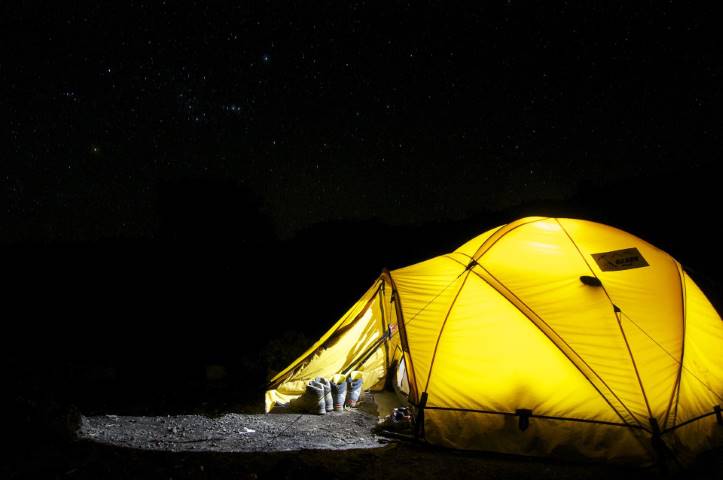Portable generators come in very handy when you plan to take a few weeks away from the city and park your car or RV at a campground while enjoying a stress-free natural environment. You can’t have that if you don’t consider your power sources and look through the available options.

Generators are available in all sizes now and this makes them portable and easy to take anywhere. It is now possible to generate power anywhere without carrying heaving equipment and setups around or struggling to fit large generators in car trunks. Campers surely love portable power and getting to enjoy electric gadgets and watching TV out in the wild. That being said, how do you buy the perfect portable generator? We answer this question by highlighting some of the important elements that need to be considered before buying a portable camping generator.
Fuel Type
Since the fuel type used in your generator can’t always be accessible in all camping sites, and because it affects how much you pay for refueling your power source, it should be considered first. For example, diesel is the most commonly used and the most efficient in terms of performance and maintenance. Propane has a long shelf life and therefore, can be carried in large quantities. Generators that run on propane are also known to produce less noise. Further, gas is more available than any other fuel and is easier to obtain due to its low prices. Some generators are even dual-fuel and run on both gas and propane. Think about what suits your camping needs more and choose a generator that is fueled by the easiest resource.
Conventional or Inverter
While conventional generators are fine, if you tend to charge delicate devices like cameras and phones, you’ll be better off with an inverter generator. The difference is inverter generators produce cleaner and safer power voltage that can automatically match the electricity needed from the other end. This means protecting your expensive and electronically sensitive devices and only powering them according to their level of voltage. Inverter generators are also quieter during operation than conventional ones that produce a lot of noise.
Power Output
One of the most important aspects of the generator you get is its power output capacity. To figure out how much power you need to run your essential devices, you can calculate the power requirements for each one of your appliances and add them all up. After determining how much power you need in total, start looking around for portable generator reviews and comparisons or read this to make up your mind. On average, campers use generators of 1600 up to 2000 watts to power their essential tools, and you should be looking around the same range.

Portability
Even portable generators have some models that are still difficult or heavy to pack or carry around. A light and easy-to-move generator would typically weigh around 20 to 30 pounds and you can find many brands that provide generators in that weight. Camping is already a big burden when it comes to carrying heavy items and packing big bags, you don’t want to be packing a 50-pound generator that slows you down and provides no more than 2000 watts of power. Even with higher power capacities, a 130-pound generator still doesn’t sound like a portable item. As a camper, you don’t need high power capacities as there are only your essential appliances to power, so look no further than portable generators under the weight of 30 pounds. There should be plenty of suitable choices out there.
Price
There’s no average budget when it comes to purchasing a portable generator with specific measures and considerations. Their prices range between 400 up to 4000 USD; more power and flexibility only means more money. Quieter motors, for example, cost higher than regular ones, and light-weight options have even higher price tags. Further, solar panels that provide more watts can be quite pricey, while high-power generators are generally more expensive. This is why deciding on your budget depends on your needs and the features you’re looking for.
Camping is all fun and games until you start planning for your trip and your essential needs. A reliable electric power source is one of those things that you can’t camp without so looking through your generator options has to be on top of your list. Consider each one of these elements carefully in order to narrow down your choices and find the perfect match. Camping generators are a lot easier to choose from, unlike home generators, since you don’t have many appliances to power which means you only need a smaller and cheaper generator.





